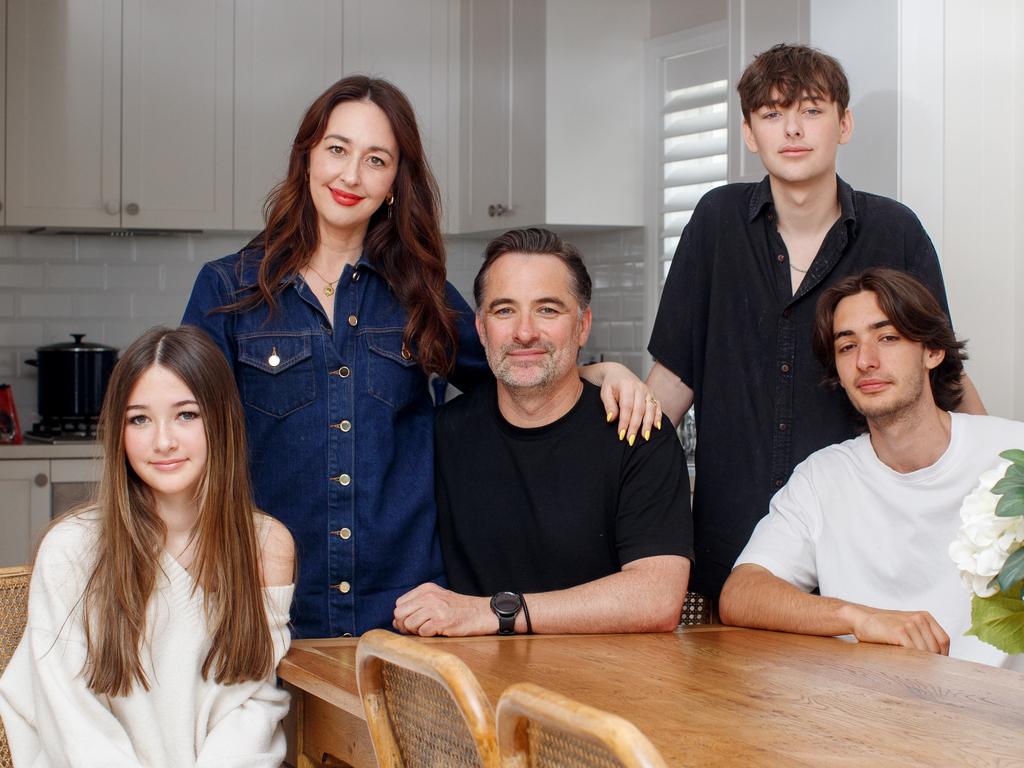Gene screening will be a big part of the future of medicine. But who should get it?
Gene screening will transform medicine as we know it. Chris Hemsworth did it, but is it useful for you?

Medicine is on the precipice of radical changes in diagnosis, personalised treatment, and the ability to prevent disease before it manifests, driven by genomics and big data. The keys to understanding the precise nature of any particular genetic problem, and therefore being able to provide therapies that directly target malignancies or biological deficiencies that cause all manner of diseases, may be hidden in our genes, which also harbour critical information as to our future risk.
When the human genome was mapped two decades ago, it represented a milestone in science. But a world in which every human has their genome mapped at birth, or even well before they are born, is not likely to be our reality any time soon. There are myriad considerations that must be taken into account, both by individuals and health systems, in making decisions about who should have gene screening and which particular genes should be screened for, as well as major regulatory concerns regarding data storage, privacy, consent, and the security of genetic information.
Chris Hemsworth underwent gene screening. Why shouldn’t I?
Australian actor Chris Hemsworth, of Thor fame, undertook gene screening while shooting a National Geographic docuseries that investigated ways to arrest the natural decline of ageing, and discovered he had inherited an elevated risk of developing Alzheimer’s disease. The Byron-Bay based Hollywood actor, whose grandfather has dementia, was rocked by the discovery, which he described as his “biggest fear” come true. He promptly took time away from acting to look after his health.
Hemsworth’s gene screening revealed his DNA contains two copies of the gene APOE4, one inherited from his mother and the other from his father. While one in four people carry a single copy of the APOE4 gene, only 2 to 3 per cent of the population have two copies.
A large body of research has linked having two copies of the gene with an eight to tenfold increased risk of developing Alzheimer’s.
But risk does not necessarily determine a person’s fate. Essentially, the measures Hemsworth is now undertaking to reduce his risk of neurodegenerative disease are the same as the existing population-wide advice: regular exercise (Hemsworth’s physique may indicate this is a regimen well and truly in place), eating well (ditto), limiting alcohol intake, getting enough sleep, not smoking and being socially engaged.
So what did Hemsworth really gain from his gene discovery? There is currently no therapeutic treatment to address APOE4-associated Alzheimer’s risk and the science around why that gene carries a risk is far from established.
He had no access to expert genetic counselling to help him interpret his gene screening result. “I had a bunch of questions, but no one answered them,” the actor told Vanity Fair when he revealed his health bombshell. “I wish I’d had a more intense follow-up with it because I didn’t really know what to think. I was like, ‘Am I supposed to be worried? Is this concerning?’”
So it seems that Hemsworth ultimately received little in the way of specific knowledge or direction as to how to go about prevention other than the ordinary mainstream advice on reducing the risk of Alzheimer’s, but gained a whole lot of anxiety.
The bottom line is: at this point in time, don’t undertake gene screening unless there is a very good reason. And if that’s the case, a specialist physician will guide you.
But it’s so easy to send your DNA in the mail and get lots of amazing genetic information. What’s wrong with that?
This brings us to the thorny and frankly concerning issue of data privacy and ownership. After many years of triggering family catastrophes in which many thousands of people found out their mum or dad was having an affair or their family had aristocratic lines of genealogy tracing back to Henry VIII, and the solving of more than a few murders, customers of the US genetic screening company 23andMe are now discovering their genetic data may be up for sale. The company is going bankrupt and the genetic data of its 15 million customers is potentially going under the hammer without their consent. Leaving aside the fact that the genetic information gained from companies like 23andMe is virtually useless from a health point of view, this situation is a vivid illustration of the risks of handing your precious genetic data over to a commercial entity. There are plenty of much more reputable commercial organisations screening people’s genes, but at the end of the day issues of privacy, consent and the risk of biohacking loom large. It’s worth being cautious about gene screening on the private market, which may give you a whole bunch of information you don’t know how to process and can’t put to any good use.
What if I know I have a specific family history of a disease?
There are some diseases that have well-documented bases in genetics which are often fairly clear throughout families. The BRCA1 and 2 high-risk gene variations, characterised by an increased risk for breast cancer and ovarian cancer, and to a lesser extent, other cancers, are the most well-known example, but Lynch syndrome, which is associated with bowel cancer, and inherited high cholesterol (familial hypercholesterolaemia) are two other good examples. This is where preventive gene screening really comes into its own, but it’s not yet widely available in Australia. Those with strong family histories of breast and ovarian cancer may be referred for BRCA gene screening, and if your doctor doesn’t recommend this it’s definitely worth pushing for. If your family has a history of people having heart attacks, especially at a young age, FH gene screening would not be a bad idea, but unfortunately this test is not available on Medicare at the present time. The utility of such a test is not only in diagnosing the condition (after all a cholesterol check would pick it up), it’s in protecting wider family members, even children, from developing future heart disease. FH, BRCA and Lynch syndrome are three common conditions that Monash University’s preventive screening trial, DNA Screen, is testing for, and an astonishing one in 50 of the 10,000 people screened already have been found to have one of these variations. This trial is limited in numbers at present despite huge consumer popularity, but preventive screening will be the way of the future.
What about reproductive screening?
Reproductive carrier screening for three devastating conditions – cystic fibrosis, spinal muscular atrophy and fragile X syndrome – is now available on Medicare, thanks largely to the efforts of brave mother Rachael Casella who campaigned for public funding of these genetic diseases after the death of her two-year-old daughter Mackenzie from spinal muscular atrophy. Australian scientists are now able to screen more than 1000 genes for genetic anomalies, and were the first in the world to be able to perform reproductive carrier screening and genomic analysis on embryos at scale for 1200 genes. Leaders in genomic medicine are now working closely with the federal government to roll such tests out to the population. This frontier in genomics is coming at us fast and will raise thorny ethical questions in the community, but will in future prevent much disability and heartbreak.






To join the conversation, please log in. Don't have an account? Register
Join the conversation, you are commenting as Logout